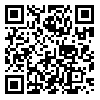BibTeX | RIS | EndNote | Medlars | ProCite | Reference Manager | RefWorks
Send citation to:
URL: http://exceptionaleducation.ir/article-1-838-en.html
2- Education
Background: This study aimed to find the impacts of computer-based education on achievement of students with intellectual disability.
Method: The method used in this study is semi-experimental supported by pretest-posttest plan. 32 male Intellectual disability students from the same grade (pre elementary) and different schools were chosen for the study, among which a total sample of 16 students was randomly chosen. 8 students received traditional education as control group and experimental group consisted of 8 students receiving computer-based education. A pre-test was carried out on both groups. Then, in a period of 14 days, the experimental group received a sum of 60-hours computer-based training course; meanwhile, the control group was taught through traditional methods by teachers. The materials used in this research were two researcher made achievement tests which were approved to be reliable by teachers of preparatory levels. The data gathered by the study was analyzed by co-variance analysis and correlated t-test.
Results: The findings obtained from the study confirmed more effectiveness of computer-based teaching methods for learners rather than traditional methods.
Conclusion: It is suggested that computer based teaching is useful in improving educational achievement of students with intellectual disability.
Received: 2016/Jan/Thu | Revised: 2017/Aug/Mon | Accepted: 2016/Aug/Tue | Published: 2017/Feb/Mon | ePublished: 2017/Feb/Mon
| Rights and permissions | |
 |
This work is licensed under a Creative Commons Attribution-NonCommercial 4.0 International License. |




